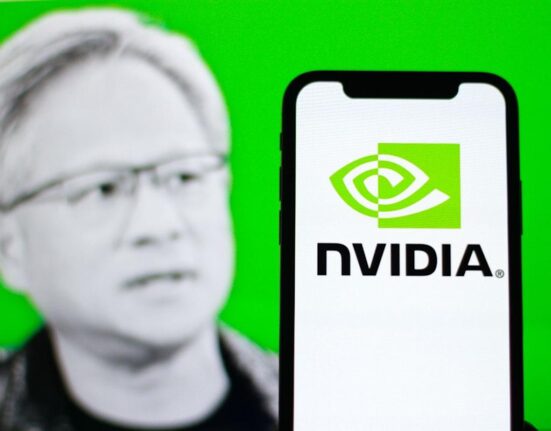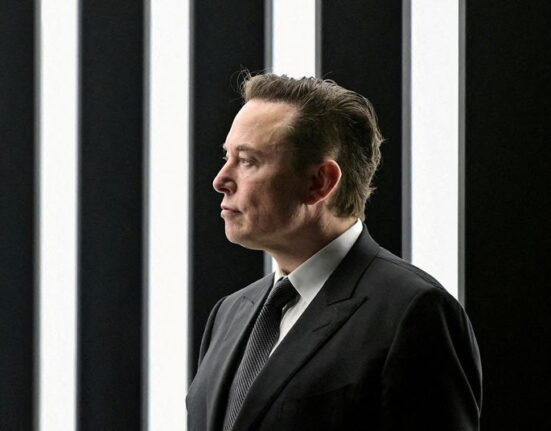Henna Virkkunen, EVP of the European Commission responsible for tech sovereignty, security and democracy, is upbeat about the E.U.’s ties with the U.S. when it comes to the media and entertainment sectors.
Speaking to Variety during her visit to Italy and the Venice Film Festival late last week, the E.U. tech boss provided an overview of the state of play when it comes to tariffs, rules of engagement for streaming giants, and AI regulations being hammered out by the European Commission, which is the executive branch of the 27-nation bloc.
First off, it’s official: U.S. President Donald Trump’s proposed 100% tariff on foreign-produced films shown in the U.S. – announced in May – has been shelved. At least pertaining to Europe.
“Of course, we heard his announcement on that in May,” Virkunen said.
“But after that, we haven’t had further information about this topic,” she added. “And now, when it comes to our [recently] concluded trade agreement we have a common text with the U.S. that only covers goods, not services. As you may know, films falls under the category of Audio Visual Services. They are services,” Virkkunnen went on to point out.
Regarding upcoming E.U. media sector regulations – in particular ones impacting U.S. players – Virkkunen underlined the need “to make sure that we have a level playing field,” noting that the EU’s creative sector “is facing many challenges” with the onset of “digitalization and very big online platforms.”
“Of course, this means big challenges for the more traditional players,” she went on to point out. “What we are now trying to evaluate with the stakeholders is how we can make sure to increasingly promote our creative sector and our cultural sector.”
To this effect, Virkkunen noted that in 2026 the E.U. will “evaluate” progress being made by its Audiovisual Media Services Directive, now in various stages of implementation across Europe. The AVMS rules state that streamers must offer a 30% quota of European content to European subscribers and directly re-invest a percentage of their revenues in each European country where they operate. “What is the state of play? [of the AVMS directive] What are the lessons learned? Is there room for improvement?”
Virkkunen said this is “something we will look at in the evaluation and review of the directive by the end of next year.”
Netflix, Disney and other U.S. streamers have been lobbying intensely in Brussels to fight the investment obligations in local content, especially those pertaining to smaller markets.
As for Europe’s so-called “digital tax,” which impacts tech firms such as Meta, Apple, and Google – and has been a bone of contention with the Trump administration – Virkkunen specified that the European Commission in July dropped plans to levy a tax on digital companies. So there currently is no E.U.-wide tax on digital services, though seven E.U. states, including France, Italy, and Spain, have introduced national levies. However, “I’m sure this discussion will continue in the next few months,” she said, noting that “members states are the decision-makers.” So it’s possible that plans for an E.U.-wide tax “could crop up again.”
Regarding the European Union’s Artificial Intelligence Act, which is the world’s first comprehensive legal framework for artificial intelligence – though it’s not yet in effect – Virkkunen said it entails a three-part “code of practice,” with each component pertaining to transparency, safety and security, and copyright.
The E.U. tech boss said she was “very happy” that more than 26 major generative AI developers, have now signed the code of practice, including “all the U.S. ones, except Meta.”
“Of course, the copyright part seems to be a very burning issue when we speak about the creative sector, especially when it comes to Europe,” Virkkunen pointed out. “European languages and European content are needed to train AI. But at the same time, it’s important that the rights’ holders get their fair compensation,” she said.
Virkkunen added that the E.U. is looking at different licensing models. “But of course, nobody can do business with other people’s work, without compensating it. That is very important.”
E.U. regulators will not be able to impose penalties for noncompliance pertaining to the AI act until August 2026.
Meanwhile Virkkunen is keen on working on copyright legislation with “like-minded” countries “because we know that AI is a new challenge in the copyright world,” she said. “Of course, the U.S. is our main partner when it comes to technologies,” she added. “So it’s really important to continue the discussions.”
Virkkunen also underlined that AI is opening up “great opportunities in the creative sector.”
“I really want to see Europe as the place to invest and innovate when it comes to AI,” she said, noting that the Venice Film Festival – which is the only major fest with a section devoted to extended reality (XR) filmmaking – is very open to technological developments.
“I think in coming years in Venice we will see examples of how AI can be used very creatively. Not to replace creativity. But to support filmmakers,” she concluded.












Leave feedback about this